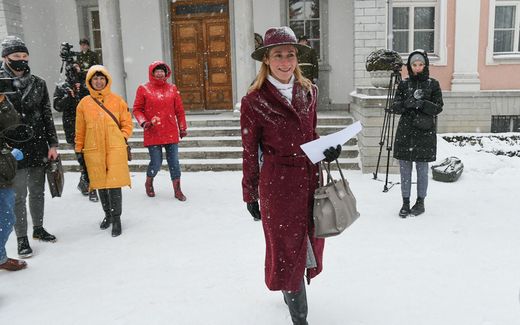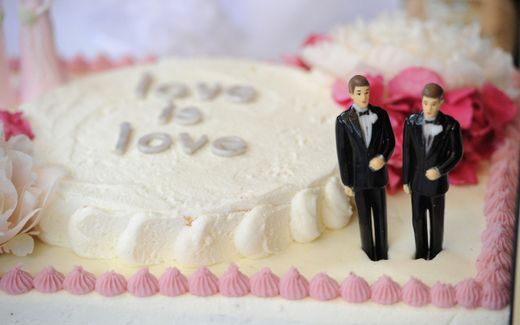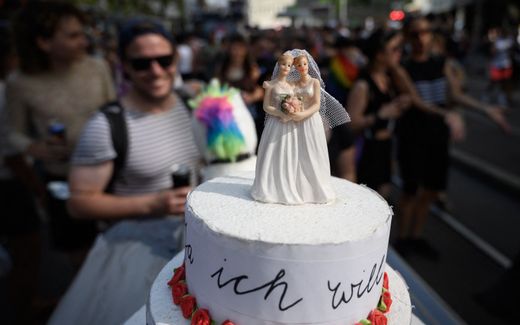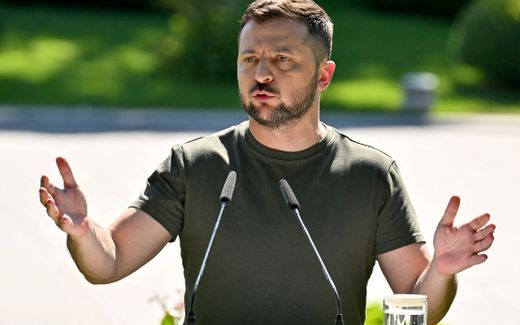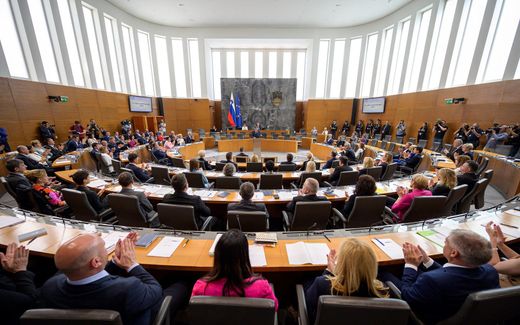Estonia legalises same-sex marriage
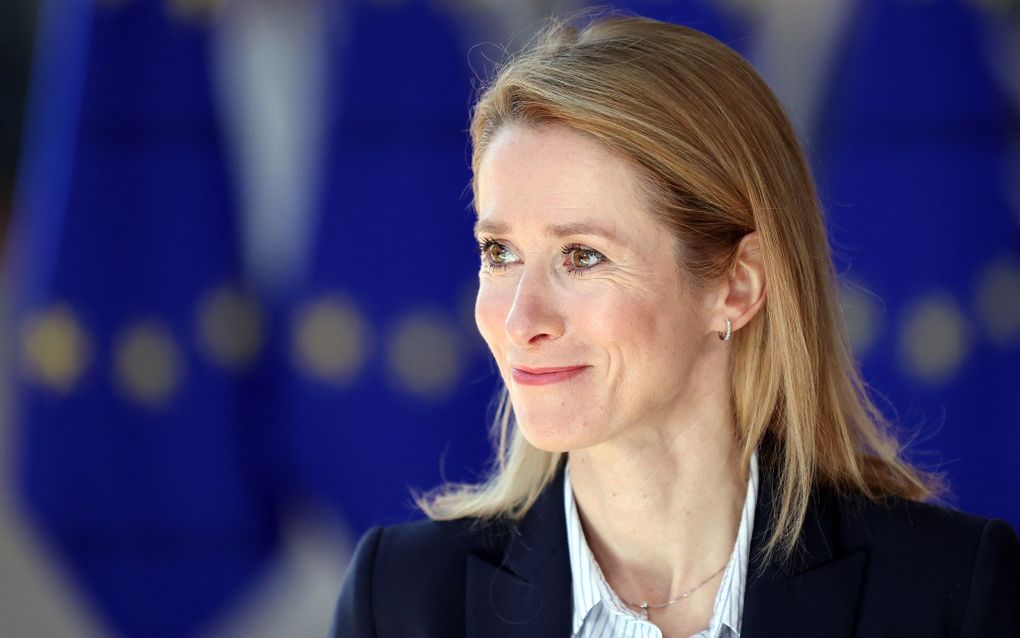
With the legalisation of same-sex marriage, the pro-European Kallas confirms the Western-oriented views of Estonia. Photo AFP, Kenzo Tribouillard
Eastern Europe
Estonia’s parliament on Tuesday opened marriage to gay couples. Although taboo in the former Eastern Bloc, gay marriage is rising.
The Estonian Prime Minister Kaja Kallas is proud of her country. “We’re building a society where everyone’s rights are respected, and people can love freely”, she stated on Twitter after the Estonian parliament, the Riigikogu, voted to legalise same-sex marriage. With the new legislation, Estonia becomes the first former Soviet republic country that allows same-sex marriage.
With 55 votes in favour and 34 votes against, Estonia’s parliament ignored right-wing opposition. It passed a law to legalise same-sex marriage. From January , Estonian Family Law will no longer refer to a marriage between a “man and a woman” but between “two natural persons.”
Furthermore, same-sex couples will be allowed to adopt children. It will also be possible for a same-sex couple to adopt your spouse’s child, provided the biological parent gives consent. Additionally, the law indicates that children cannot have more than two parents.
According to Tanel Kiik, an MP for progressive Estonian Centre Party, which is primarly supported by Estonia's Russophone minority, the Estonian government is worsening the demographic challenges for Estonia by legalising same-sex marriage. Estonia is currently going through its lowest birthrate in a century. Kiik, therefore, initiated a no-confidence vote, which Kallas survived.
In late May, hundreds more people demonstrated against the legislation. According to Varro Vooglaid, MP, on behalf of the Conservative People’s Party of Estonia, the family is the foundation of the nation’s survival. “If the foundations of the family are destroyed, then Estonia as a state will also be destroyed.”
Sensitive
The new legislation comes only two months after a liberal coalition government took office. After winning the most votes in early March during general elections, Prime Minister Kallas invited liberal parties into coalition talks to become the first Baltic country to allow same-sex marriage. Even though same-sex marriage is a sensitive issue in the former Soviet Republic, the pro-European Kaja Kallas was determined to get the legislation adopted. In April, she stated that the new government wanted to legislate same-sex marriage “as fast as possible.”

Even though a registered partnership for same-sex couples has been possible since 2014, marriage was not open for them yet. This was because a conservative party in the coalition always kept to the classical view of marriage. “For almost a decade, there has been little to no progress when it comes to the rights of same-sex couples in Estonia”, Lauri Läänemets, Minister of the Interior, told Politico.
Unacceptable
Although a majority of Estonians support the legalisation of same-sex marriage, this majority is small; about 53 per cent of the population supports same-sex marriage. According to Reuters, 38 per cent of Estonians see homosexuality as unacceptable. A big factor in this is the country’s Russian minority of about a quarter of the population. Homosexual Estonians tend to be discreet about their orientation. More than half have faced harassment recently, according to the authorities.
Ideology
Eduard Odinets, MP for the Social Democrats, sees the old form or marriage as part of the “ideology and values of the Soviet era.” Against the backdrop of the war in Ukraine, in which Estonia is one of the fiercest supporters of Ukraine, the vote for same-sex marriage takes on geopolitical dimensions. The vote for same-sex marriage is not only a vote for the LGBT community, as Odinets explains. “By allowing same-sex marriage, we are making it clear to Russians and Russia that we are not on their side.”
The English-language statements by Kallas and Foreign Minister Margus Tsahkna underscore this vision: Estonia wants to turn toward the West.
Curtain
After Slovenia in 2022, Estonia is one of the countries behind the former Iron Curtain that is at the forefront of same-sex marriage. Kallas realises that too, she tells Reuters. “My message to Central Europe is that it’s a difficult fight, but marriage and love is something that you have to promote.”
Until now, Slovenia was the only country from the Eastern Bloc that has opened marriage for same-sex couples. But Slovenia was part of Yugoslavia and not the Soviet Union.
In Latvia and Lithuania, the other Baltic states, legislation around same-sex relationships is also discussed. Those laws are stuck in parliament for now. Earlier this month, Latvia elected its former foreign minister, Edgars Rinkevics, as president. In doing so, the 49-year-old became Europe’s first openly gay head of state.
Related Articles


